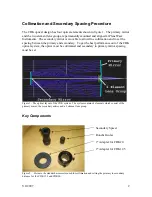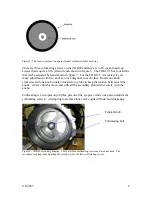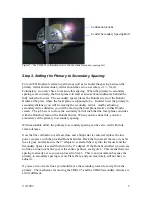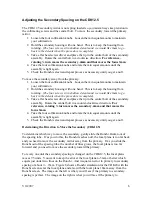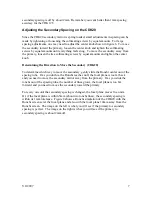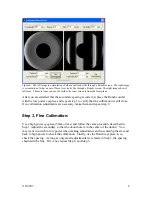
V112907
4
Figure 5: This is an example of an approximately collimated defocused star.
There are three collimating screws on the CDK20 and they are ¼-20 socket head cap
screws that require a 3/16 Allen wrench shown in figure 6. The CDK12.5 has four knobs
that can be adjusted by hand shown in figure 7. For the CDK12.5 it is easiest if you
make adjustment with two knobs at once diagonal to each other. Rotate one knob
clockwise and one knob counter-clockwise in order to keep the tension between all the
knobs. Always finish a move and with all the secondary preloaded securely with the
knobs.
Collimating is a two-person job (One person at the eyepiece while one person adjusts the
collimating screws). Attempting to do this alone can be quite difficult and frustrating.
Figure 6: CDK20 secondary housing. There are three collimating screws and a central knob. The
secondary is spring loaded pulling the secondary into the three collimating screws.
Central Knob
Collimating bolt


